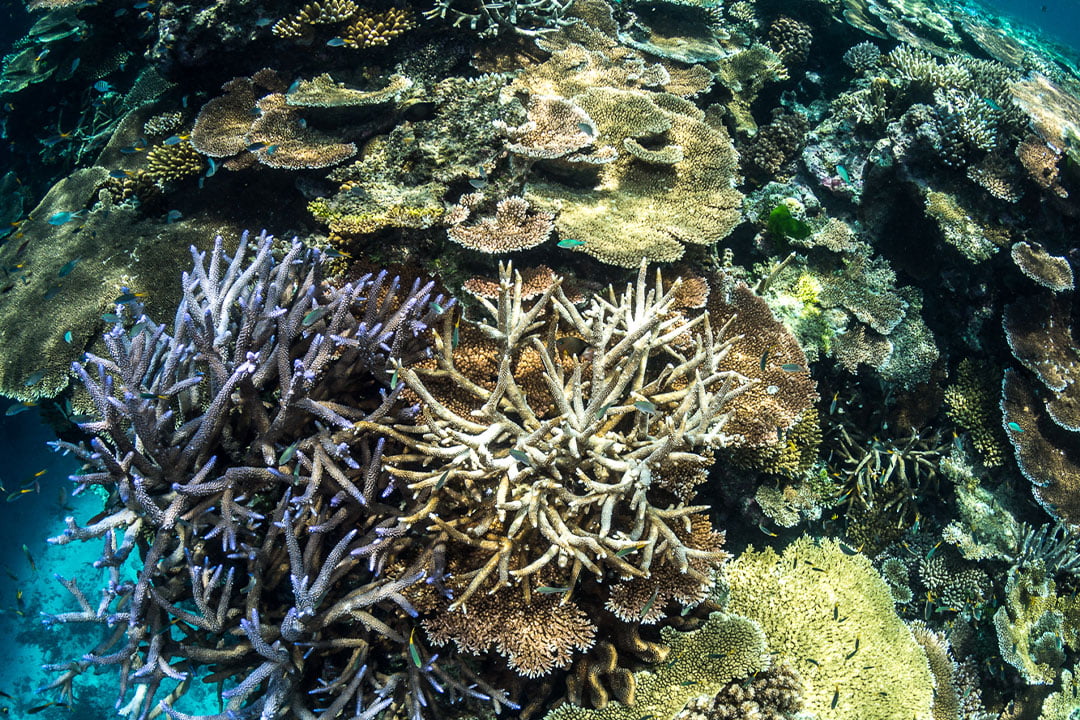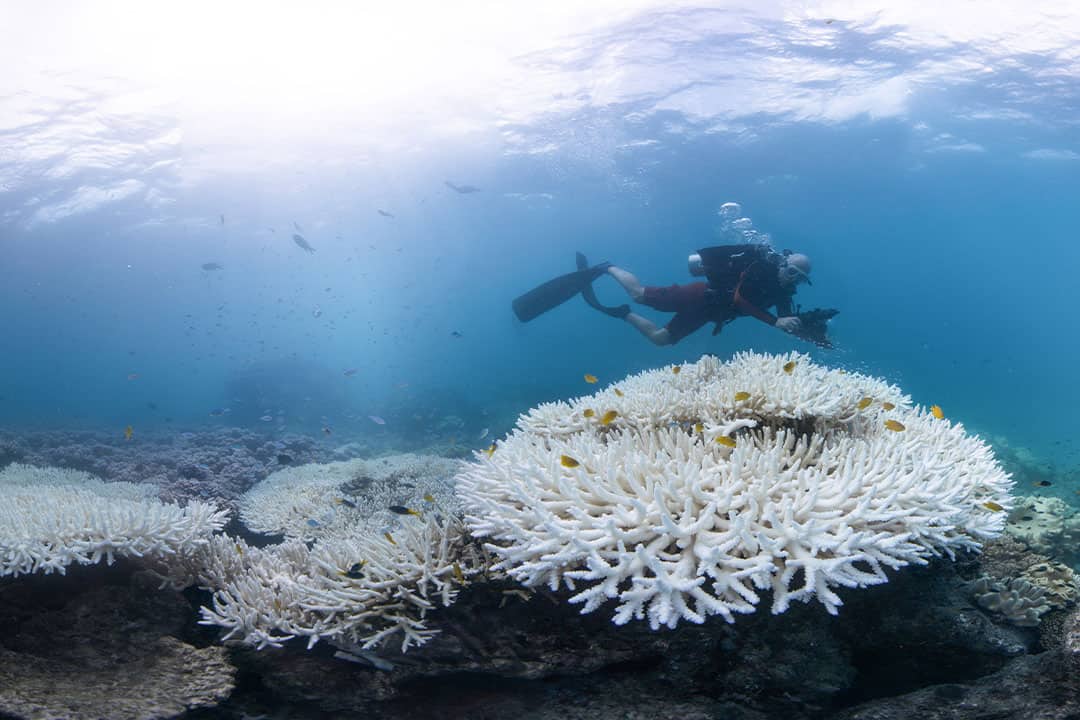Threats To The Great Barrier Reef Marine Park
© Official Local Whitsundays Website
Australia’s Great Barrier Reef Marine Park is like a precious gem in the ocean, glittering and shimmering with life. But its beauty is under threat from many sources, both natural and man-made. In this article, we explore why it’s so important to protect the GBRMP, looking at what dangers are facing its delicate ecosystem and how they might be tackled.
As one of Australia’s most beloved landmarks, the Great Barrier Reef Marine Park (GBRMP) has captivated us for centuries with its dazzling array of marine wildlife. Home to an incredible variety of creatures such as manta rays, sea turtles, tropical fish and corals alike, there’s no denying that this place deserves our utmost respect and protection for generations to come.
But despite being a UNESCO World Heritage Site since 1981, the GBRMP faces numerous threats from climate change to pollution that could have devastating consequences if left unaddressed. So let’s dive into some of these challenges below – because only by understanding them can we hope to preserve this magical underwater kingdom for future generations.

Conservation Issues Facing The Park
The Great Barrier Reef Marine Park is one of the most spectacular natural wonders in Australia. It’s home to an incredible array of marine life, coral species and habitats. Unfortunately, it faces a range of threats that threaten its future health and existence. These include climate change, ocean acidification, water pollution and fishing pressures.
Despite these challenges, there are conservation efforts being taken to protect the park from further damage. Governments have implemented strategies such as limiting seabed trawling activities and banning certain types of fishing gear within the park boundaries. The Australian government has also established programs to reduce local runoff into the reef waters. Additionally, citizens can help contribute to conserving this magnificent resource by engaging in environmental education initiatives like beach clean-ups or participating in research projects conducted by universities or non-profit organizations.
Collectively we must come together if we’re going to ensure that this precious ecosystem remains healthy for generations to come. We all share a responsibility when it comes to protecting our environment – let’s do what we can today so that those who follow us will be able to appreciate its beauty tomorrow!
Climate Change
The Great Barrier Reef Marine Park is facing an existential threat from climate change. It’s a truly unprecedented crisis that could devastate this natural wonder of the world, and it deserves attention like never before.
Climate change has devastating consequences on coral reefs: rising ocean temperatures cause coral bleaching; higher acidity levels in seawater reduce corals’ ability to build their skeletons; and more powerful storms can cause massive destruction to reef habitats. All of these effects have been observed over the past few decades at the GBRMP, resulting in loss of biodiversity, decreased fish populations, and slower recovery times for damaged areas.
The impacts are clear:
1. Rising ocean temperatures lead to coral bleaching events – causing long-term damage or even death for affected species.
2. Higher acidity levels weaken existing corals and make it harder for new ones to form.
3. More intense storms increase physical damage to the reef system, making recovery slow or impossible in some cases.
4. Loss of biodiversity leads to disruptions in food webs, reducing fish populations drastically over time.
It’s heartbreaking to know that our actions today will affect generations down the line – but it also comes with a responsibility to act now if we want any chance at preserving this unique ecosystem for future generations. We must find ways to mitigate against these threats as soon as possible while taking steps towards achieving carbon neutrality across all sectors of society so that we don’t continue contributing further stressors onto already fragile ecosystems like the Great Barrier Reef Marine Park.

Pollution
The Great Barrier Reef Marine Park is home to some of the most vibrant and diverse ecosystems in the world, but unfortunately it’s facing a number of threats. Pollution from land-based sources has been identified as one of the main causes for concern. Various pollutants such as agricultural pesticides, sewage, industrial runoff, and marine debris are responsible for causing huge damage to this fragile ecosystem.
This pollution affects every part of the reef ecosystem; fish, coral reefs, seagrass beds, mangrove forests and even birds that inhabit these areas are all at risk due to human activities on shorelines. These pollutants can be found in our waterways long after they were first released into them – meaning their impact lasts far longer than we may think. The chemicals present in these pollutants have also been known to cause health problems among humans if ingested through seafood or recreational swimming activities.
It’s essential that everyone takes steps to reduce their individual contribution to water pollution by reducing waste production and disposing of materials responsibly. We must work together to protect our precious reef system for future generations – so let’s make sure we do something about it now!
Overfishing
The Great Barrier Reef Marine Park is an important ecosystem and its protection is essential for the health of the ocean. Unfortunately, threats to this protected area come in many forms- one of which being overfishing. With a vast array of fish species living within its waters, it’s no wonder that fishing can be considered a lucrative endeavor – but when done so at unsustainable levels, it becomes a problem.
Ultimately, overfishing occurs when too much effort is put into catching fish, allowing fewer individuals to reach adulthood and reproduce in order to replenish their stocks. While this may seem like a beneficial activity on the surface (harvesting more fish from the wild), it can quickly deplete marine life if not carefully managed through proper fishing regulations and limits. This has been seen throughout history with cod fisheries off the coast of New England and even now with certain populations of tuna near Japan.
In order to prevent further damage caused by unchecked fishing endeavors, governments must implement stringent management measures such as catch limits, size restrictions and closure areas. In addition, non-governmental organizations have also pushed for sustainable practices amongst recreational fishers who make up a significant portion of those who target Great Barrier Reef fishes each year. By taking these steps together we can ensure that future generations will be able to enjoy the same abundance as our own – all while preserving the beauty and awe found in this world heritage site
Impact Of These Threats On The Park’s Ecosystem
The threats to the Great Barrier Reef Marine Park have had an immense impact on its ecosystem. Pristine coral reefs that were once teeming with life and beauty are now suffering from bleaching, disease, and destruction due to human activities. Fishing has caused a dramatic decline in some species’ populations, making them more vulnerable to predators; this is especially true of rare species like giant clams. Pollution has also had a detrimental effect on the park’s waters: agricultural runoff carries toxic chemicals into rivers which flow out into the ocean, while plastics and other debris can smother sea creatures or entangle them in nets.
These issues have led to a decrease in biodiversity throughout the park, as many native plants and animals struggle for survival amidst changing conditions. This means fewer resources for humans too-for example, local fishing communities may no longer be able to depend on certain fish stocks for food or income. Ultimately, these impacts could even cause irreparable damage to ecosystems if left unchecked. It’s clear that addressing these threats quickly is essential for preserving the health of the Great Barrier Reef Marine Park – both now and into the future.
Efforts Underway To Address These Effects
The Great Barrier Reef Marine Park is one of the world’s most iconic tourist destinations, and it faces a variety of threats that could endanger its health. Thankfully, there are efforts underway to address these effects and protect this precious resource for generations to come. By researching and planning your Great Barrier Reef visit, you to can help lessen your footprint.
Marine conservation has become an increasingly important topic in recent years, and organizations worldwide have begun undertaking initiatives aimed at protecting delicate reef ecosystems such as the Great Barrier Reef. These range from educating local communities about sustainable fishing practices to introducing new laws that limit pollutant run-off from agricultural sources into rivers and streams. In Australia, scientists have even developed sophisticated 3D mapping technologies which allow them to monitor changes in coral reefs over time. This helps to ensure that any negative impacts can be quickly identified and addressed before they become too severe.
Organizations like The Nature Conservancy have also been working diligently with local partners on projects like reef restoration, which involves replanting corals that were damaged by bleaching or disease outbreaks back onto the sea floor. Additionally, they’ve helped establish marine reserves across the region where no commercial fishing takes place – allowing fish populations to recover without human interference. All of these combined efforts demonstrate just how committed people around the globe are to preserving our planet’s natural resources – showing us why it’s so important we continue supporting these causes now more than ever.
[forminator_form id=”244492″]
Hi, I’m Nath J, a long-time local who’s been lucky enough to live and work tourism in the Whitsundays since 2001.
Over the past two decades, I’ve helped visitors discover the best of this incredible region, from Whitehaven Beach and Hill Inlet to the hidden spots only locals know about. I started out managing boats and tours, and these days I run Ripple Effect Online, a tourism-focused digital marketing business helping local operators grow and connect with travellers like you.
I’ve written an ebook called Whitsunday Islands: A Journey through Paradise, created countless local travel guides, and earned recognition as a “Whitsundays Tourism Hero” from QTIC for my contribution to the region and gained First Nations Cultural Protocol training through QTIC as well. But more importantly, I’ve spent years listening to travellers, understanding what makes a trip unforgettable, and helping people plan the kind of experience they’ll talk about for years.
If you’re planning a visit to Whitehaven Beach or anywhere in the Whitsundays, I’m here to help you make it amazing.
Find me on Facebook and LinkedIn or drop me an email at info@nath-j.au.
